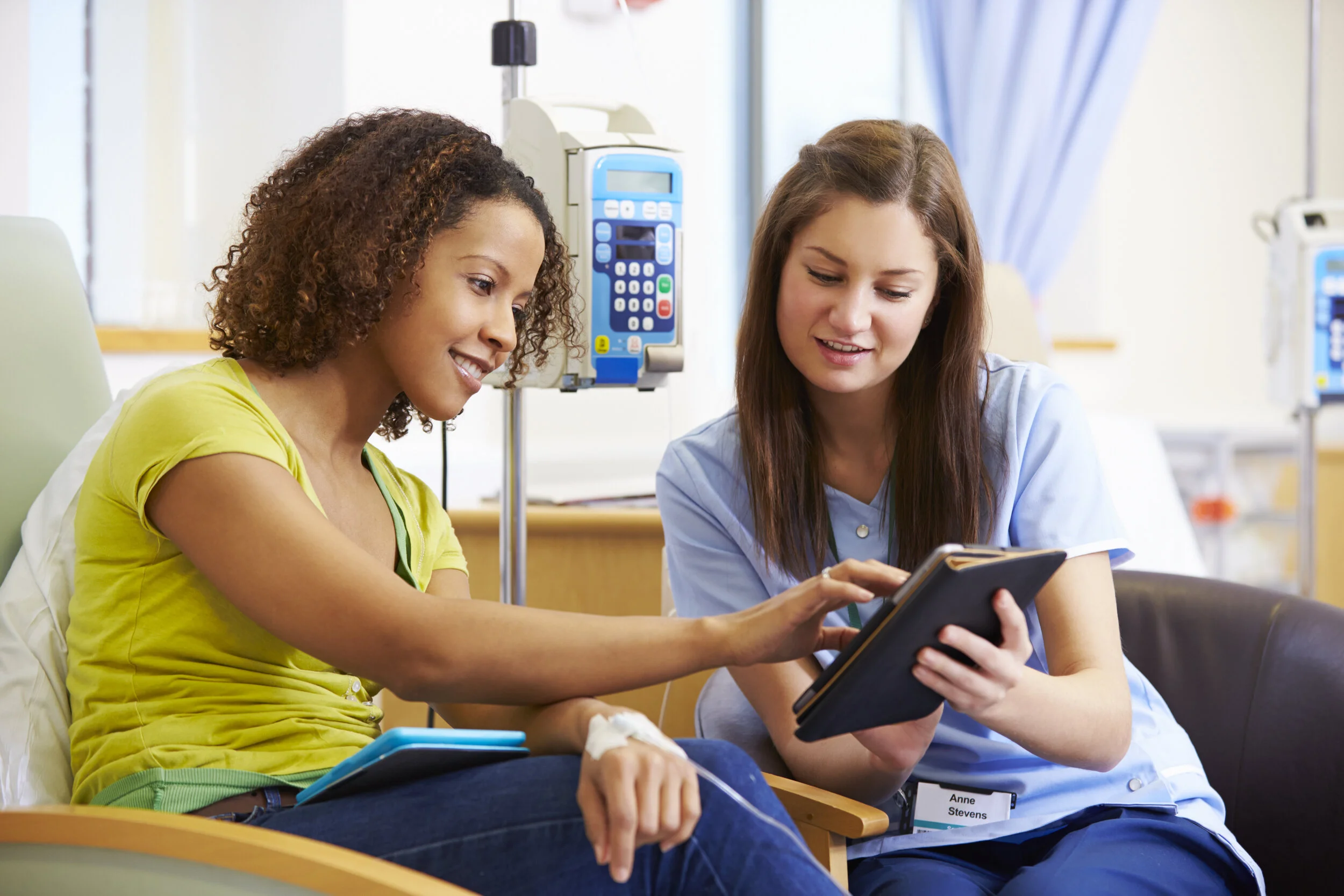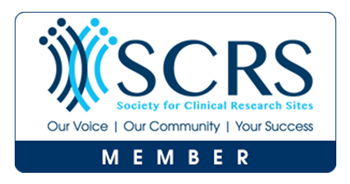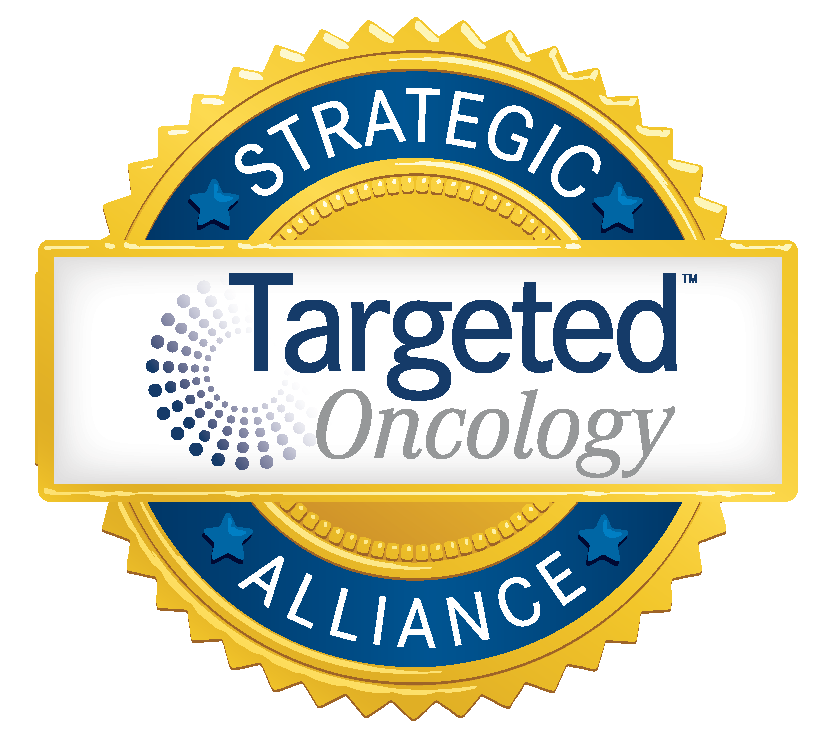CHEMOTHERAPY
Chemotherapy is the treatment of cancer with specific drugs that can destroy cancer cells. Chemotherapy drugs work by destroying cells that divide rapidly. Unfortunately, healthy cells can also be harmed, especially those that also divide rapidly. Many of the side effects from chemotherapy are related to the effects chemotherapy has on healthy cells. Every chemotherapy drug is different and can cause a variety of side effects. Contrary to popular belief, many of these side effects can be easily managed with prescription drugs, relaxation, exercise, good nutrition, and complimentary/alternative medicine.
Chemotherapy is not “one size or one drug fits all”. Most chemotherapy drugs work best in combination. Therefore, it is not unusual to receive 2 or more different drugs together or to have chemotherapy and radiation therapy combined. Each treatment plan is individually tailored for a specific disease and patient. For example, although two women may have the same breast cancer, they may receive different drugs depending on their age, risk factors, and health history. Many people who are diagnosed with cancer will talk to their friends, family and neighbors about cancer and chemotherapy. It is important to realize that everyone reacts to chemotherapy differently and side effect management continues to improve with new scientific discoveries.
Prior to receiving any chemotherapy, you will be scheduled for a chemotherapy education session (generally 1.5 hour in length) with our nurse practitioner. During this session, all possible side effects will be discussed in-depth. You will also receive advice on symptom management, support groups, and cancer resources. We recommend and encourage you to bring a friend or family member to the chemotherapy education session. This appointment is a great time to ask any questions about your treatment and what side effects may be encountered.
COMMONLY ASKED QUESTIONS REGARDING CHEMOTHERAPY
Question: Will I lose my hair?
Answer: Some chemotherapy drugs do cause hair loss (but not all). If the chemotherapy does cause hair loss, your hair will begin to fall out within 2-3 weeks after your first treatment. Hair will generally begin to grow back 4-6 weeks after the last chemotherapy treatment. During the chemotherapy education session, you will be given information about where to obtain wigs and/or scarves.
Question: Can I still work while getting my cancer treatments?
Answer: Most of our patients do work while getting their treatments. We will make every attempt to accommodate your work schedule. Some of our patients choose to request family medical leave (FMLA) from their employer. We are happy to complete any forms required by your employer to support your time away from work.
Question: Will I have any nausea or vomiting?
Answer: Not all chemotherapy drugs cause nausea and vomiting. For those that may cause nausea, you will be given anti-nausea medication through your IV before you receive chemotherapy. You will also be given prescriptions for anti-nausea medication to take at home if needed. There are many excellent medications that we use to prevent nausea and vomiting. Most patients experience little or no nausea during treatment.
Question: Will I be on a special diet?
Answer: There are no food restrictions during chemotherapy. We do emphasize a healthy diet consisting of protein and complex carbohydrates. It is also important to eat 5-6 small meals per day rather than 3 large meals per day.
Question: Do the side effects get worse with each treatment?
Answer: Some patients do report that they feel more fatigued toward the end of chemotherapy. Other side effects (such as nausea, constipation, diarrhea, etc…) are not cumulative during therapy.
Question: I still want to have children. Will the chemotherapy make me sterile?
Answer: Some chemotherapy treatments may cause permanent sterility. We will discuss sperm banking and/or egg retrieval prior to starting treatment. It is very important to use some form of birth control during your treatments.
Question: Will I have any activity restrictions?
Answer: We encourage you to stay as active as possible. Moderate exercise has been shown to decrease fatigue and improve well-being.
Question: I have read a lot about complimentary/alternative medicine. Can I do this and receive chemotherapy?
Answer: Many of our patients derive benefits from acupuncture, massage therapy, Reiki, Yoga, Aromatherapy, and guided imagery. We will be happy to refer you to a licensed therapist in the area. If you have any questions about specific herbs, vitamins, or minerals, please discuss this with your physician or nurse practitioner at an office visit.
Question: Will I be at higher risk for an infection while getting chemotherapy?
Answer: Most chemotherapy drugs do cause a temporary drop in white blood cells. This may make you more prone to infections. During the chemotherapy education session, you will learn more about the signs and symptoms of an infection and when to call our office. There are also drugs that we use to lessen the likelihood of an infection.
Question: Is chemotherapy covered by my insurance?
Answer: Our billing staff will obtain all necessary pre-authorizations for chemotherapy and related services. You will be notified what financial responsibility, if any, you will have for your treatments.







